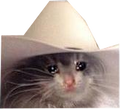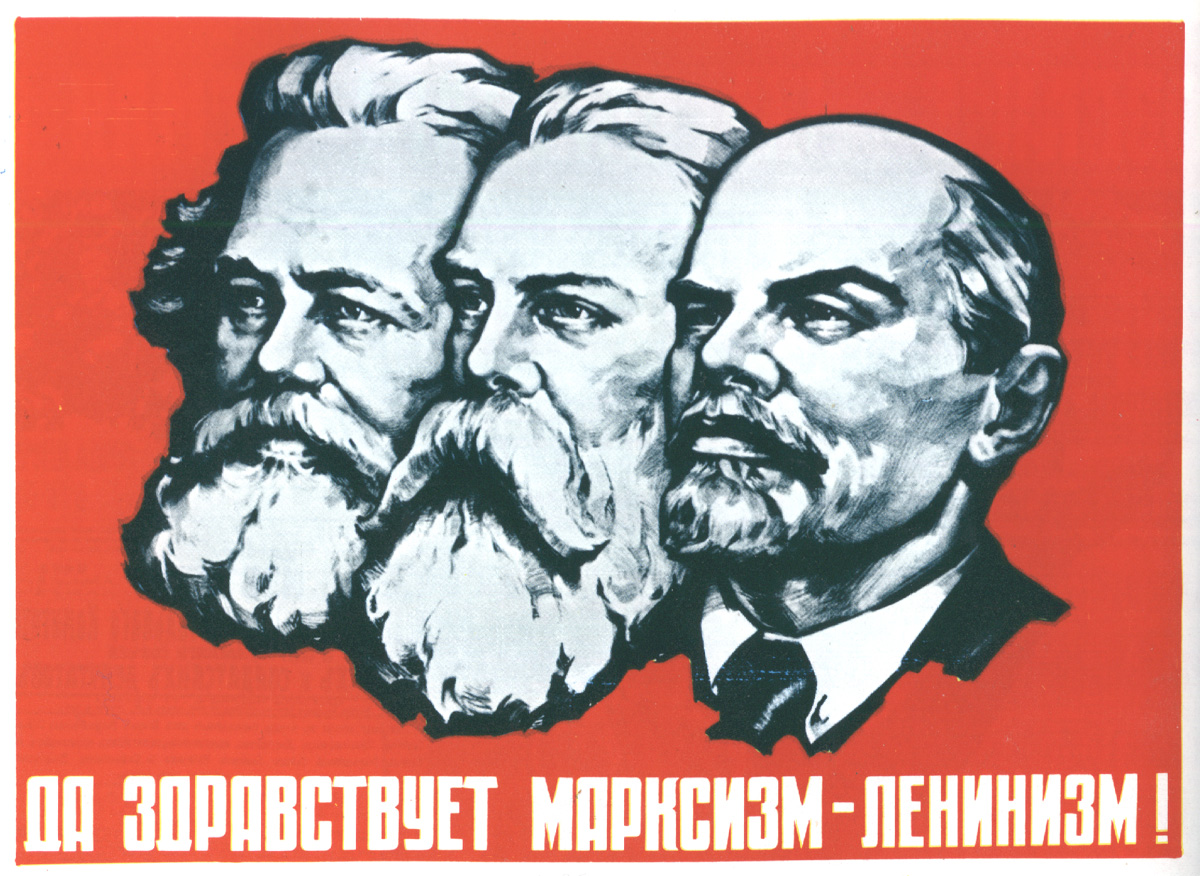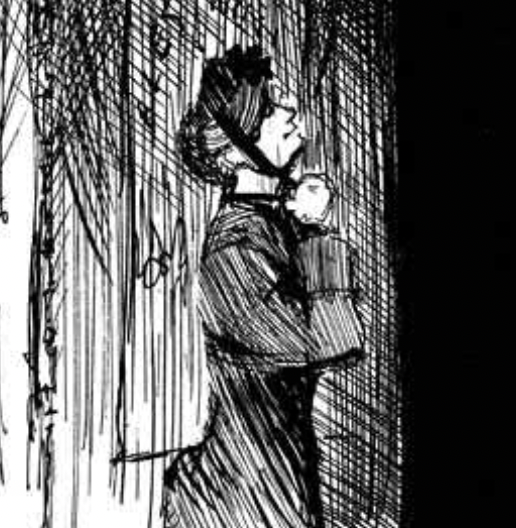I read 25 titles over the year, split about evenly between non-fiction and fiction. I'll only mention the non-fic here.
The Great (in alphabetic order)
If We Burn by Vincent Bevins - not much to add on this text that hasn't already been said. It's as good as people say and as valuable an analysis as a liberal is likely to offer. If you're actively organizing rn (and if you're not what are you doing) this is a really good text to cover with your comrades or just by yourself.
Caliban and the Witch by Silvia Fererici - what a surprise this book fucking cooks. Very rich text. I think some people who haven't read it assume the "witch" part of the title is dominant and overlook the "Caliban" part, this is not simply a text on Marxist feminism (not to belittle texts that are), but really a much grander effort to discuss the psychosocial changes that were/are required of a pre-capitalist society to turn it into a capitalist one. Very cool text, she's a very cool lady with a lot to say.
The Darker Nations: A People's History of the Third World by Vijay Prishad - a people's history of the Non-Aligned Movement. A lot of his later texts are poorly-cited pamphlets but this earlier work is very serious, incredibly thoughtful and artful constructed. It's easy to imagine a version of this book being that is a bunch of sprawling facts as it involves like 80 different counties but he organizes the book by concept (like developmental economics, the cultural question, IMF and World Bank, Saudi exportation of Wahhabist islam as a counter to secular Arab nationalism) and centers each chapter around a city that acts as a metonym for the idea, then expands the chapter to other areas that had significant movements with respect to the idea. Highly recommended.
The Tenant Class by Ricardo Tranjan - great short and accessible text by the Canadian Centre for Policy Alternatives on the fundamental contradiction of solving a housing crisis without addressing housing as an asset. If you're a leftist living in C*nada you're probably doing some organizing around housing, this is a must for sure. Really crystallizes in simple language a lot of important points, and the citations are a goldmine - specifically Canadian statistics and reporting.
The Good
Discourse on Colonialism by Aime Cesaire - this shit rocks. A little sprawling but definitely fire. Almost more poetry than theory.
Bullshit Jobs by David Graeber - I loved Debt but had low expectations for this one and was reluctant to read it (I expected it would just be an extremely padded out version of the essay, which I liked). I enjoyed it a lot more than I expected, and I'm reminded how skillful ![]() was at gently taking a reader along and path that is unambiguously radical, yet each individual step on the path seems casual and reasonable. Easy read.
was at gently taking a reader along and path that is unambiguously radical, yet each individual step on the path seems casual and reasonable. Easy read.
Less is More: How Degrowth Will Save the World by Jason Hickel - like the above, this was surprisingly high quality and a very easy read (I think I knocked it out in like 4 days and I'm a slow reader). Much more bold than I expected, he began his argument paraphrasing Federici's key arguments from Caliban and the Witch, asking readers to consider that the manner in which we have grown to think about ourselves as removed from the environment is a relatively new manner of thinking that coincided with the birth of capitalism, and a successful effort to overcome fossil capital will also require an effort to undo this view of the Earth as an instrument for us as opposed to something we're a part of. Most of the rest is just a well-articulated outline of the degrowth argument which you may already be familiar with.
Liberalism: A Counter-History by Domenico Losurdo - very cool, but can be a little plodding at times. I don't think I knew just how much of the text would be focused not just on liberal societies but writings of 18th century liberal philosophers. Nonetheless I think everyone here should read it eventually as it does outline a pretty important argument about liberalism that is built upon in...
Western Marxism by Domenico Losurdo - great text and important. Again a little slow and drawn out. There is a 30 page transcription of the speech this text was based on attached in the Appendix, and I wonder how well it would do to just read that.
The Decent
Annihilation of Caste by B.R. Ambedkar - this guy was cool, he was a liberal ultimately but still very cool to read this text and the supporting documentation around it (I read the Verso version with the Arunduthi Roy 120 page essay on him and Ghandi, plus other flavour to expand on the context.) Glad I read it.
Doppelgänger by Naomi Klein - really has its ups and downs. There are some interesting arguments in here, but also a lot of just reading about a rich liberal's relationship to Twitter. She's better on Israel than I would have expected and dedicated two chapters to antizionism which I was surprised by.
The Reconciliation Manifesto: Recovering the Land, Rebuilding the Economy by Art Manuel and Grand Chief Ronald Derrickson - good and fiery, but maybe a little off-the-cuff in some ways. If you live in C*nada you should probably read it some time but it's not the first text on the topic I'd recommend.
Wage Labour and Capital Karl Marx - I often struggle with Marx's prose and I'm much more of an Engels guy. I also often feel like reading these original texts is a bit of a waste of time tbh, like basically no physicist would ever sit down and read Newton's Principia, reading the original text requires quite a lot of labour and the extra value you get out of doing so is questionable at best. (Hot take I know but w/e just being honest)
Wouldn't Recommend
Late Victorian Holocausts by Mike Davis - There is some good stuff in here but I was hoping for a lot more analysis. The pages were stuffed instead with example after example of barbaric suffering of those enduring famine. I don't mind reading about those kind of things but was really hoping he'd do a lot more with the space he had. I don't think Mike Davis is for me.
Looking Forward to reading in 2025
I'm part way through Andreas Malm's new book Overshoot which is really great so far. I think if there's one theorist who I think is underread I think it's Malm, he's the only one I see writing about the climate apocalypse with anything approaching the urgency of the task at hand, and his writing is incisive.
Also looking to maybe read Piketty's Capital and Ideology, Losurdo's Class Struggle, and some Strugatsky Brothers. Open to recommendations though!
I am still in the back-half of Brothers Karamazov. I only rarely read it, but it remains an outstanding novel that hits my feels like a fucking boxer every time I do. Dostoevsky just fucking understands something about people. Every scene in this book is a life-changing one for the characters, which I guess could feel exhausting, but there's something about the atmosphere of the story that makes sense why they're all like this. Now I do have my gripes with it. Chief of which is that sometimes he will write a paragraph that spans three pages. I need a break Ted! But it also kind of works with how you and the characters are suddenly swept up from contemplation into a momentously important exchange. Good book. My friend says that he was trying to create a distinctly Russian style of literature and I think he did achieve that.
I hope to tackle that one someday. Crime and Punishment is one of my favorite books and Notes from Underground has a special place in my heart.
It's a challenging text but well worth it. If you can get through the somewhat longwinded passages, the drama of the characters is incredible.
The translation matters a ton in my experience. I tried and failed to read it with the Constance Garnett translation and found it very hard to stick with it. For my third attempt I picked up the Pevear and Volokhonsky translation and couldn't put it down.
I read all three volumes Capital as part of the reading group, which consumed a lot of my reading time this year. It's a lot to get through, and I didn't fully comprehend it (I think it's not something you can digest on your first read-through, it does really demand a structured class to teach it). But still, really valuable, and has clarified a lot of basic misconceptions I had about Marxism, and makes a lot of redditor and youtuber commentary about it seem misinformed.
Another good one I read early in the year was One Hundred Years of Solitude. I had read it before in Spanish for school, but I revisited it in English. The Rabassa translation is very good, capturing a lot of the intended nuance of language. A book full of shitty people in un-fun situations, but with a kind of whimsy to it.
My favorite of the year was The Gods Themselves, which is about humans and aliens trying to do the right thing for each other, despite being unable to meaningfully communicate. Suffers from all the typical problematic aspects of mid-century sci-fi, but really strong hard sci fi world building. For what started as a slap-dash edit job of a bunch of disconnected novellas, the end result is quite compelling.
Whoah. All 3 volumes in a year is crazy. Nice work comrade

I want to go back to 100 Years of Solitude I was reading it for a book club but got sick and never finished it. I was really enjoying it though I think it's a really interesting project. Are you going to watch the new show?
Read:
- The Worldview and Philosophical Methodology of Marxism-Leninism: Curriculum of the Basic Principles of Marxism-Leninism Part 1
- Blackshirts and Reds
- The Will To Change (almost done)
To Read:
- Malcolm X Autobiography
- The Jakarta Method
- Debt: The First 5000 Years
- Capital (I'm about halfway done)
- Ten Days That Shook The World
- Luna Oi's translation of the chapters on Historical Materialism
So much more. This Kobo Sage is going to be put to work.
Nice. I'm about to start my first bell hooks soon myself.
Blackshirts and Reds is great fun, though I wish it was more well-cited and feel like it falls off after chapter 4 or 5. On my last read chapter 2 (In Praise of Revolution or something) really stood out to me as an incredible banger that I had totally memory-holed from my first read.
Hope you enjoy The Jakarta Method. I recommend as a companion watch Joshua Oppenheimer's The Act of Killing (2012) and it's sequel The Look of Silence (2013), two of the best (and craziest documentaries) I've ever seen.
Debt is a banger, but can be a tough read. If you can push through some of the more dense chapters early on the book is really rewarding. I'm sure if you're reading Capital it will seem easy now that I think of it
I found YouTube links in your comment. Here are links to the same videos on alternative frontends that protect your privacy:
Link 1:
Link 2:
Read: Sakai's Dangerous Class - Reading/having knowledge of 18th Brumaire coming into this helps, not a long read and if you find Marx's work cryptic go for it
Biography of Zhou Enlai lalong with some select readings - highly recommend
Econ and social structure of Fascism by Sohen - highly recommend, you want this one
Psychology of Fascism by Reich - Hits in some places, lots of libertarian brainworms makes it a hard read, would recommend Fannon and Cesaire instead of you want some of the psych aspect and Federici for the gender disparity issues, it does have some dramatic lines though that are fun quotable
Peasant War by Engels, obvious req reading
Zakk Cope (Kkkope)'s Divided world divided class, the figures check out as do some rough edges and connections, but there's way too many overt brainworms, if you got 2/3 of the way through this like I did you won't even see that reactionary 'heel turn' as a heel turn, it was coming down the assembly line at any moment and I don't think I can do the last third
Not theory nonfic;
Beloved Beasts - Bit lib but about conservationism and its history, not a terrible read
Biography of Hirshfield - this was interesting I thought, but I'm gsrm so bias shows One by Pas - Terribly lib, about monoism's place in physics, too idealist but a textbook example of that stack overflow from mechanical materialism into idealist metaphysics without knowing about reddit nerds
Superforecasting - Nah, I would recommend Thinkertoys instead if you like puzzles, or just to see agency inspired think tank tactics, diamat trivializes some of the content if you do try some of the later chapter thinking puzzles
Enochian empire - sure sounds like a magic history book with some dawn of the colonial era geopolitics and spying, but there's an interesting origins of imperialism colonialism from a rather different perspective such things are looked at in this along with some glance at bourgeois moralizing and self destructive tendencies and its reflection
Hope to Read:
Lots of losurdo's works, hope to start with Class Struggle
Counter revolution of 1776
Palo Alto
Pedagogy of the Oppressed
Reread Dialect of Nature
non theory Origin of the bicameral mind -been wanting to read this since college, better be worth it
Abu Nuwas poetry, another been wanting to read for 10+ yrs
Biography of Zhou Enlai lalong with some select readings - highly recommend
The recently published one by Chen Jian? I've been eyeing that at my local library.
Its the version from 1981 you can stumble upon online rather readily
Could you elaborate on the brainworms in 'Divided World, Divided Class'? I read it a few years ago and was relatively shocked by Cope becoming a shithead. (inasmuch as any white academic leftist can surprise you by becoming a reactionary)
What range alarms the heaviest were some of his takes on the origin of capital along with diving capitalism into an ideal 'free trade capitalism' from its origins in 'mercantile capitalism' then more modern industrial and 'monopoly capitalism' harping on about the evils about the later stages with an almost lack of realization they were always there from the origin, stuff doesn't come from thin air, the same beast just in development growing into what we see today, however, he highlights the history quite well. That is something I see chud economists and dabblers do, so immediately I wasn't surprised about his 180, free trade dreaming my ass, though he even points out why this isn't a thing in some of his stats its weird he doesn't connect it as fully. Its almost as if he's taking the approach of a snipe hunt for an economic version of the missing link or magical economic transmutation, where human development is in neat stages when reality it isn't quite so.
Then there's utter stark defeatism, sure some of it is beyond warranted, though even when he's quite good at looking at the context of things honestly there's a sense he should know better and it fails to realize the fluidity of some of our conditions and adaptation though some is quite cooked in socially for a bit. Then there's some of your standard radlib anti-AES brainworms that go a little too strong, and there's a vibe of while pointing out the issues and weaknesses of imperialism yet seeing the periphery as unable to fully save themselves which really rubbed me the wrong way.
He did seem trapped in the white western 'Third Worldist' trap of saying "I can't do anything here so you have to let me theorize while people in the Global South do the real fighting and dying of revolution."—never minding that correct theory comes from nowhere but social practice and he is unable to participate from the imperial core.
I've noticed many Western supposed left academics having, due to their conditions in the core granted, an otherizaton of whatever marginalized worker you can come up with that they should know better theoretically, that these are the people they need to reach out to and educate, not scoff and roll their eyes that they're unable to be helped because of the excuse de jour. Even if all you can do is agitate people and tell them the basics of another way that's 500x better than rolling over defeated 'wah wah revolution dead before it started, all of them died, no true economic revolution, eternal capitalism's boot on my face'.
I got a copy of Glass Immortals for Christmas. It's apparently not McClellan's best work, but I'm sure it will still be worth the read. I also picked up a copy of Malcolm X's autobiography after having it on my tbr list since the fourth grade or so. Imagine how harcore I'd be if I read that as a kid.
As for what I read last year, literally just the Quran, Bocchi the Rock, and most of Wretched of the earth. I'd have read more, but I'm dedicated to finishing this Fanon piece first. It's been a struggle, since I keep falling off right around the dry parts.
I really struggled with Wretched of the Earth myself, I really just occurred inched along. I should go back to it. As a companion piece, I recommend the excellent documentary Concerning Violence: 9 Scenes from the Anti-Imperialistic Self-defense (2014). It takes you through incredible footage of different liberation struggles in the 60s and 70s with Lauryn Hill reading excerpts from the essay "On Violence*.
I found a YouTube link in your comment. Here are links to the same video on alternative frontends that protect your privacy:
I finished the dark tower novels, they were a nice fun read.
I read half of the book of the new sun, by gene wolf, very interesting, and many of the concepts are flying over my head which I wouldn't even know if I wasn't listening to a read along podcast.
And I read apostles of mercy by Lindsay Ellis. A solid first trilogy for a former YouTuber turned author. I found the entire trilogy more adept at facing trauma than expected (I haven't read many books that tackle it, so I'm sure there is others who do it better) but also writes in a way that millennials connect with.
I'm really enjoying Lindsay Ellis's Noumena series so far, I think it covers different ground than other sci fi I've read recently. I appreciate how messy the plot, the characters, and the themes are.
I feel like Tanya Huff handles trauma well in her Vampire books, even if she was mostly rushing the Blood series out to pay the bills.
I heard bad things overall, but an interesting sci-fi premise - what did you find?
An absolute masterpiece, just mind boggling, has changed my perspective on life in some ways. I know this sounds dramatic but they truly are amazing. There is no reason not to read them, absolutely the best sci fi trilogy written. (Though go into it knowing that the characterization is mid, especially in the first book, and that book #2 is the best.)
Oh interesting! Cool. I've been going through a big scifi kick recently, thanks for the rec!
Ofc! If you get through them and remember, reach out to me so I can have someone to chat with about them.
I'm currently reading "Addiction by Design: Machine Gambling in Las Vegas" by Natasha Dow Schull. It's an interesting book of research into the architecture and design of casinos and slot machines and how they create gambling addicts. It's based on extensive research and interviews with gambling addicts, casino designers and slot machine manufacturers.
I'll post what I read in 2024 later
I cannot remember what all I read this year and a lot of what I read is either not on my list or not checked off from my list.
Still, I’ll say I just finished Mastering of the Core Teachings of the Buddha, and it was a banger. Anyone interested in Buddhism/mysticism/enlightenment whatever should give it a shot. I acknowledge others may not be so enthralled with the style as I.
I started The Ecological Thought today and it looks pretty great so far. It lines up so well with all my conclusions about the nature of the world and each page there’s a line that reflects my thoughts in simple ways I’ve never seen before. It looks like it’s about dialectics and ontology and ecosocialism, but from a different (psychoanalysis + critical theory + more) perspective than the Marxist or Buddhist I’m used to.
Peter Zapffe's 'On The Tragic' finally got translated to English so once I finish reading the Losurdo book I'm reading I'm going to read that, I think.
It's good. I really liked the first 1/4 or so. It does the best job of dispelling anti-communist narratives and also shows how there are alternative takes on Stalin, including the US's public opinion of Stalin before WW2 ended, rather than just the stupid single story we're fed about 'evil dictator; 100 million dead'. I just finished the long-ass chapter that's dispelling anti-semitism in the USSR and Stalin and then also generally Hannah Arendt's stupid USSR takes, which I already have heard or read about so I was tempted to skip it but I rarely do that so the book feels like it's spending too long arguing with bad faith readers. But it's good! Also, I guess some of the terminology is a little difficult like the term "concentrationary universe" which the footnotes defined thankfully but I still feel like I don't fully grasp its meaning and how he uses it.
spending too long arguing with bad faith readers.
This is a good criticism of Losurdo imo. The charitable interpretation is he's trying to make a formal and rock-solid argument but yeah it can feel like a lot of details and repetition when you're reading it as a non-academic







